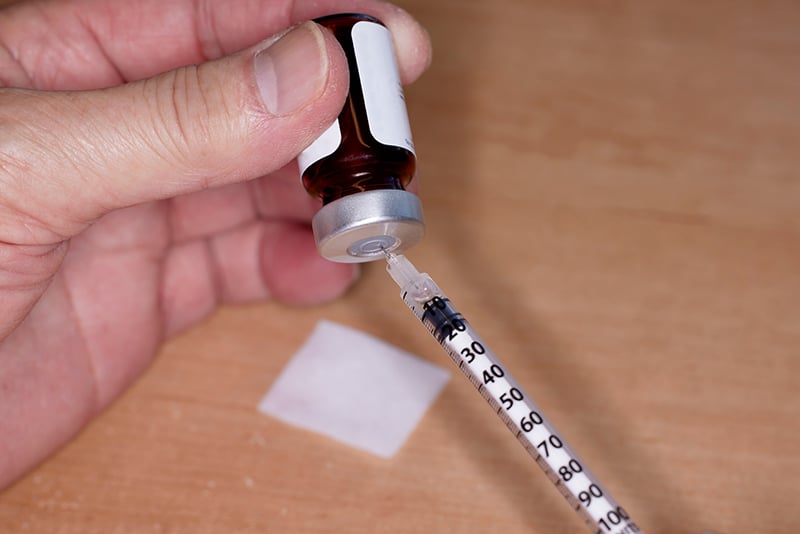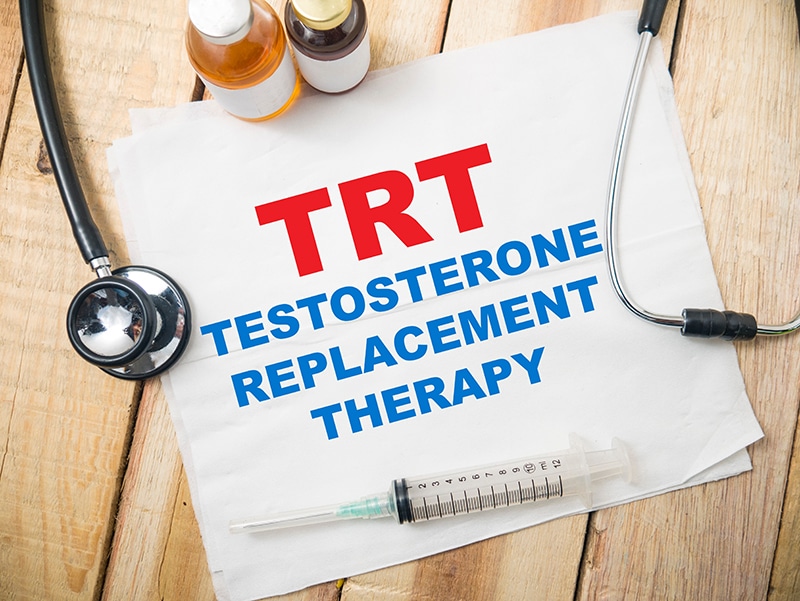What is Hypogonadism?
Hypogonadism is the medical term for testosterone deficiency and simply means having a low testosterone level. It happens when the testes do not function normally. This can be due to a problem in the testes (primary), where testosterone is made, or a problem in the pituitary gland underneath the brain (secondary), which controls the function of the testes. Low testosterone can happen in men of any age. However, there is a progressive decline in testosterone levels as men get older.
If your own body does not make enough testosterone, you may benefit from having supplemental testosterone. If indicated, testosterone replacement therapy will be initiated by our practitioner.
Symptoms of Low Testosterone
- Fatigue
- Lethargy
- Depression
- Anxiety
- Irritability
- Low libido
- Erectile dysfunction
- Reduced exercise tolerance and strength
- Excessive sweating and night sweats
- Poor concentration or memory

What is Testosterone Replacement Therapy (TRT)?

Testosterone levels are known to decline as men age. The Baltimore Longitudinal Study of Aging reported the incidence of hypogonadism as 20% in men over 60 years of age, 30% in men over 70 years and 50% in men over 80 years of age. As men age, a decline in testicular production of testosterone are seen, as well as an increase in sex hormone binding globulin, both of which act to decrease bioavailable testosterone. With this gradual decline, the beneficial effects of testosterone could be diminished and negatively affect physical and emotional well-being. Testosterone replacement therapy (TRT) is a reasonable treatment option often discussed for men with low testosterone levels and symptoms of hypogonadism.
When replaced, many of the positive effects of testosterone are regained. These positive results have led to a drastic increase in the use of testosterone replacement for men with symptomatic hypogonadism, though long-term data is lacking on the safety.
Benefits of TRT
Testosterone replacement aims to improve the symptoms that you may have been experiencing (listed above). If your bone density has reduced because of low testosterone, replacement therapy may also be utilized to improve your bone density.
An improvement in symptoms may occur with treatment, but keep in mind the time frame and overall improvement vary amongst patients. Testosterone levels will be measured routinely to monitor if the treatment is safe and effective
Testosterone has many beneficial effects:
Increasing Bone Strength and Density
Inducing Hematopoiesis
Driving Sexual Function and Libido
Providing a Cardioprotective Effect
Increasing Muscle Strength
Risks of TRT
While the beneficial effects of testosterone are rarely disputed and widely publicized, there is a paucity of the literature on the risks of testosterone use. Any man who has a comorbidity that precludes TRT should be informed of all risks and those risks should be considered when administering TRT to a patient.
Risks include but are not limited to:
Exacerbation of Prostate Cancer
Male Breast Cancer
Worsening Benign Prostatic Hyperplasia (BPH)
Polycythemia*
An Increased Risk of Obstructive Sleep Apnea (OSA)
*The increased levels of hemoglobin or hematocrit indicate a thickening of the blood which may be associated with an increased risk of heart attack, stroke and blood clots. Your blood will be tested prior to treatment and routinely during treatment to monitor your hemoglobin and hematocrit level. In addition we may ask you to donate blood to help reduce your hemoglobin and hematocrit.
Testosterone treatment can also cause an enlarged prostate or other prostate disorders. During treatment, your prostate specific antigen (PSA) will be measured to monitor for any changes. This is particularly important in men over 45 years of age.
Other Possible Side Effects
- weight gain
- increased appetite
- hot flashes
- acne
- depression
- restlessness
- irritability
- aggression
- tiredness
- general weakness
- excessive sweating
